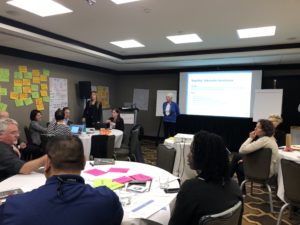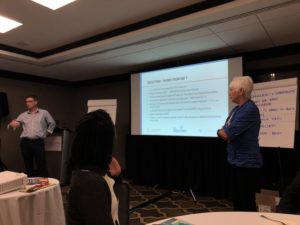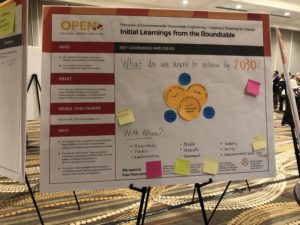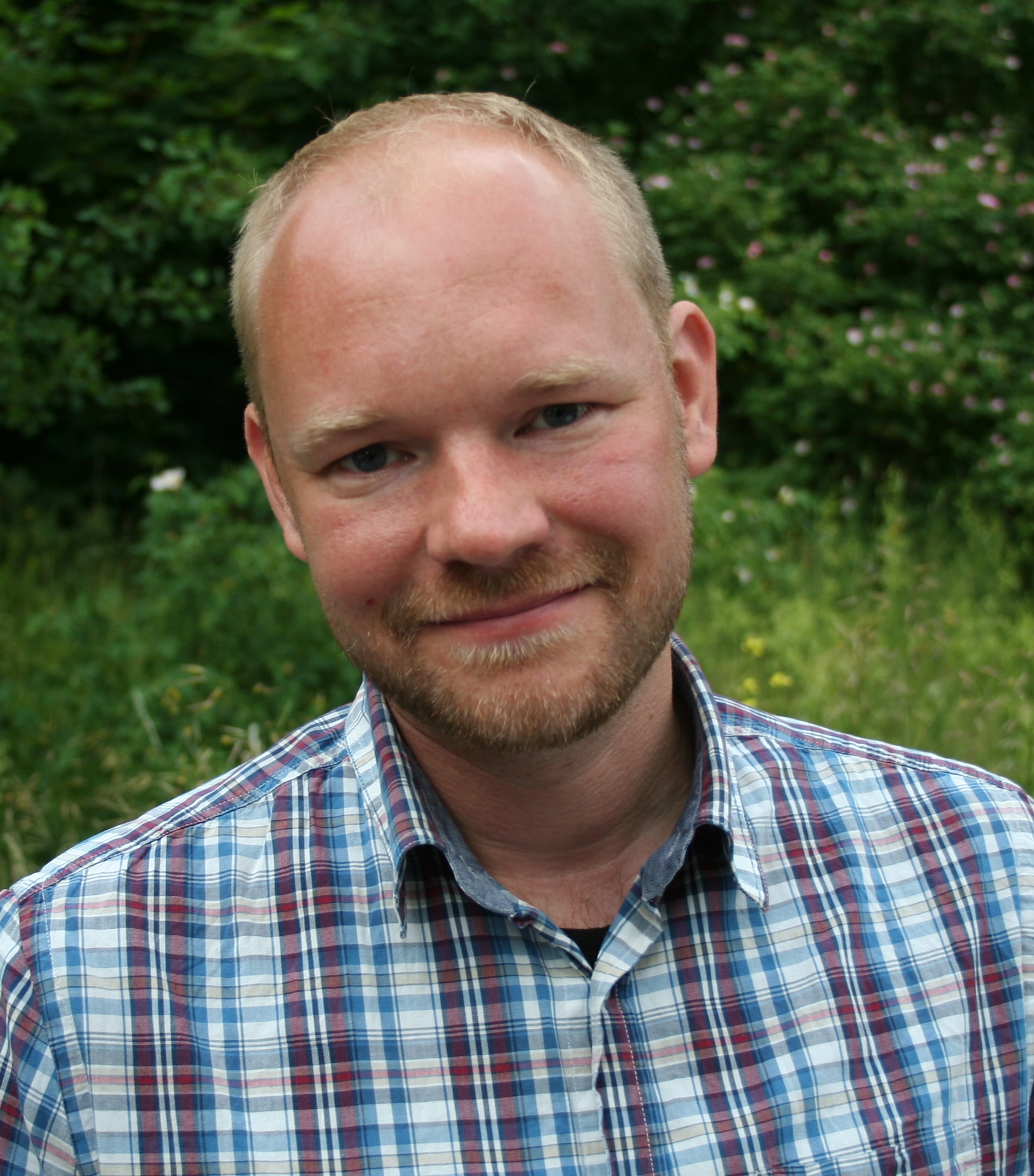How will American engineering students learn the skills they will need to tackle the grand challenges of the world? The concept of sustainable development – including environmental and social responsibility – has not previously been mandatory to study at American institutions. But this is going to change.
This week I participated in a roundtable discussion in Washington D.C. focusing on how American universities should integrate sustainability in engineering education. For two intense days, 20 experts including professors and industry experts discussed how principles of environmentally responsible engineering should and must be integrated in all engineering education in the US. The roundtable was a pre-conference activity of the OPEN VentureWell conference (28-30 Martch 2019).
The session was facilitated by Darcy Winslow and Charles Holmes of the Academy for Systems Change, on behalf of the hosts VentureWell and the Lemelson Foundation. The objective of this work will be to create a roadmap for change.

The role of the engineer
Engineers are key professionals in the transformation that society is undergoing, and have been so for the last two centuries. Technical development has had a huge impact on how we go by our daily business and made life easier, safer and more comfortable to ever more people. However, as our technological strength has increased, our increasingly technology-based lifestyle has brought many unwanted side effects. Those include the eradication of 60% of animal populations since 1970, the loss of 7 million people every year due to air pollution, and potentially devastating effects due to anthropogenic climate change.
In more and more countries, engineering education is considered a key leverage point for making the needed change towards a more sustainable development. More and more young people are also making a conscious decision about their career, refusing to work for companies that have a net negative impact to climate change for example. Embedding sustainability as a natural part of engineering education is becoming a differentiation and branding opportunity for institutions of higher education.
Creating a roadmap for change
The roundtable hosted by the Lemelson Foundation and VentureWell convened 20 thought leaders from across higher education, non-profit organisations, corporate business, and government. I was the only expert called in from outside the USA. All of us had extensive experience and expertise in engineering education for sustainable development through research, teaching and invention as well as in spreading this approach within our respective fields.

The scope of the meeting was to create a roadmap for defining and developing a framework for environmentally responsible engineering. Throughout these two days, we were engaging in workshops and discussions. Everybody was sharing their personal experiences and challenges, and we tried to innovate about the most feasible way ahead.
As everyone was expressing their enthusiasm about taking part in future activities following these two intensive days, at the end of the second day indeed we had reached a few conclusions:
- As a valuable next step, a strategic document should be created that clarifies the rationale and urgency of this work. In this document, the concept of environmentally responsible engineering should be defined and the core questions, goals, and values that define it should be brought into light.
- It would also be valuable to develop comprehensive communication tools and a repository of existing sustainability frameworks and other relevant resources.
- This year, 2019, was cited as a clear window of opportunity for establishing a timeline of critical milestones and deliverables for the future of this effort
The work that we have been devoted to at Snowflake Education for the last couple of years indeed reflect extremely well the needs stated by the participants at the roundtable. Since we have already developed the teaching tools and the methodology that everybody was claiming to be missing, undeniably, there will probably be a huge demand for the products and services that we are able to deliver.

Is America finally on the right path towards sustainability?
I learnt during the roundtable that ABET (the Accreditation Board for Engineering and Technology), the recognized accreditor of engineering programs in the United States, has recently updated its’ accreditation standards and decided to strengthen the statements for sustainability and ethics.
Reading the new learning objectives for sustainability, it is astonishing how closely those now resemble the learning objectives in the Swedish accreditation documents.
This is how the learning objectives for sustainability and ethics are stated in the ABET Engineering Area Delegation as of October 20, 2017, for implementation in the 2019–2020 accreditation review cycle:
“2. an ability to apply engineering design to produce solutions that meet specified needs with consideration of public health, safety, and welfare, as well as global, cultural, social, environmental, and economic factors
4. an ability to recognize ethical and professional responsibilities in engineering situations and make informed judgments, which must consider the impact of engineering solutions in global, economic, environmental, and societal contexts”
This is the corresponding articulation in the Swedish Higher Education Ordinance:
“For the degree of Master of Science in Engineering, the student should be able to:
show the ability to develop and design products, processes and systems with regard to people’s conditions and needs and society’s goals for economic, social and ecologically sustainable development,
demonstrate the ability to make judgments with regard to relevant scientific, social and ethical aspects and to show awareness of ethical aspects of research and development work,
show insight into the possibilities and limitations of technology, its role in society and people’s responsibility for how it is used, including social and economic aspects, and environmental and work environment aspects, […]”
During the roundtable, I got a distinct feeling of haven travelled back in time with a time machine. The fact is, that we have worked along those lines at universities in Sweden for the last fifteen years. I suddenly realized how much I had to contribute with, since I was essentially the only one in the room equipped with a crystal ball. I had done this whole exercise before.
In Sweden, the Higher Education Act from 2006 states that all university education must be designed to promote a sustainable development. Therefore, all education programmes have to integrate sustainability and environmental concern into their curriculum, learning activities, and assessment. It is inspiring to conclude that US universities will now be following after on the same path. Maybe there will be one thing or two that we could share on how to do this – and how not to do it.


